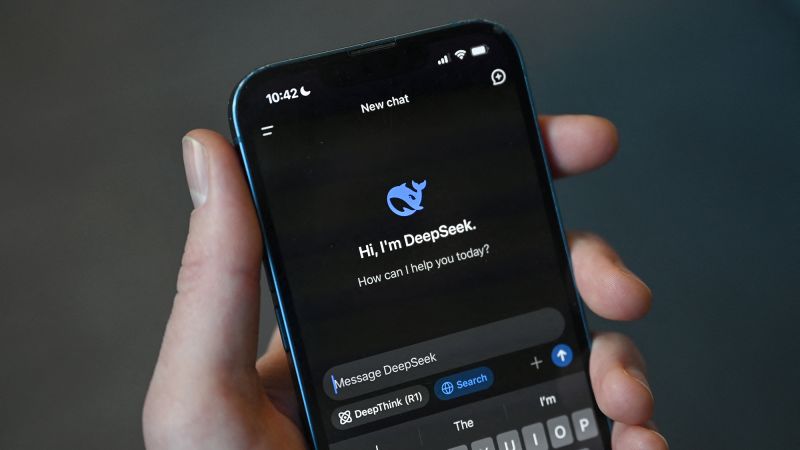A growing concern among U.S. lawmakers regarding the use of foreign technology by government workers has emerged with the intention of introducing legislation that targets a specific Chinese AI startup called DeepSeek. Representatives Darin LaHood, a Republican from Illinois, and Josh Gottheimer, a Democrat from New Jersey, are taking the initiative to propose a bill on an upcoming Friday. The aim of the bill is to prohibit the utilization of DeepSeek’s artificial intelligence chatbot on government devices, citing national security as the primary reason for this action.
This move signifies a part of a broader struggle for technological dominance between the United States and China. DeepSeek has become a focal point in this conflict, recently making headlines by launching an advanced AI model known as R1. Remarkably, R1 exhibits capabilities akin to top American models but is reportedly cheaper to train and less reliant on energy. This development has raised alarms within Silicon Valley and Wall Street, especially since DeepSeek is a relatively new player, having only been established about a year ago, and operates under U.S. export restrictions concerning potent AI chips.
Should this bill be enacted, it would set a 60-day timeline for government agencies to formulate standards and guidelines for eliminating DeepSeek from official devices. Additionally, the proposed legislation would cover any apps that are a product of DeepSeek’s parent company, High Flyer. The seriousness of the situation can be appreciated when looking at similar actions taken by other countries like Australia, Italy, and Taiwan, indicating a rising global awareness regarding the implications of using technology from firms in nations that hold contrasting philosophies regarding surveillance and privacy.
Interestingly, DeepSeek has yet to issue any statements regarding this burgeoning controversy. The proposed legislation is reminiscent of past efforts to limit access to popular apps like TikTok, owned by the Chinese company ByteDance. Recently, fears regarding ByteDance’s potential obligation to share sensitive U.S. user data with the Chinese government led to similar legislative endeavors. Since 2022, various federal and state government agencies have instigated bans on TikTok for its employees, and there is now heightened urgency, underscored by a bipartisan agreement last year, compelling ByteDance to divest TikTok within a window of fewer than 60 days to avert a complete ban on the platform in the United States.
In light of this, Gottheimer articulated in a statement that the Chinese Communist Party (CCP) will leverage every available resource to threaten national security through data collection and the spread of disinformation. He emphatically stated that allowing the infiltration of government devices by the CCP is an unacceptable risk. This sentiment echoes the fears that have persisted since the discourse surrounding TikTok, where similar concerns about data security have been voiced repeatedly.
Moreover, the emerging dynamics of artificial intelligence bring to light new considerations regarding data privacy. Chatbots, such as the one developed by DeepSeek, often utilize user conversations to refine their algorithms, raising significant privacy issues. However, experts assert that DeepSeek may pose an even greater risk due to its ties to Chinese ownership. Adrianus Warmenhoven, a cybersecurity expert with NordVPN, has warned that any data shared on platforms connected to Chinese legislation could be accessible to governmental authorities under China’s cybersecurity regulations, which demand compliance from local companies in matters of data access.
The evolving situation with DeepSeek and the proposed legislative measures serves as a significant chapter in the ongoing grappling between national security priorities and technological advancement, a narrative that will likely continue to play out as global power dynamics shift and evolve.



